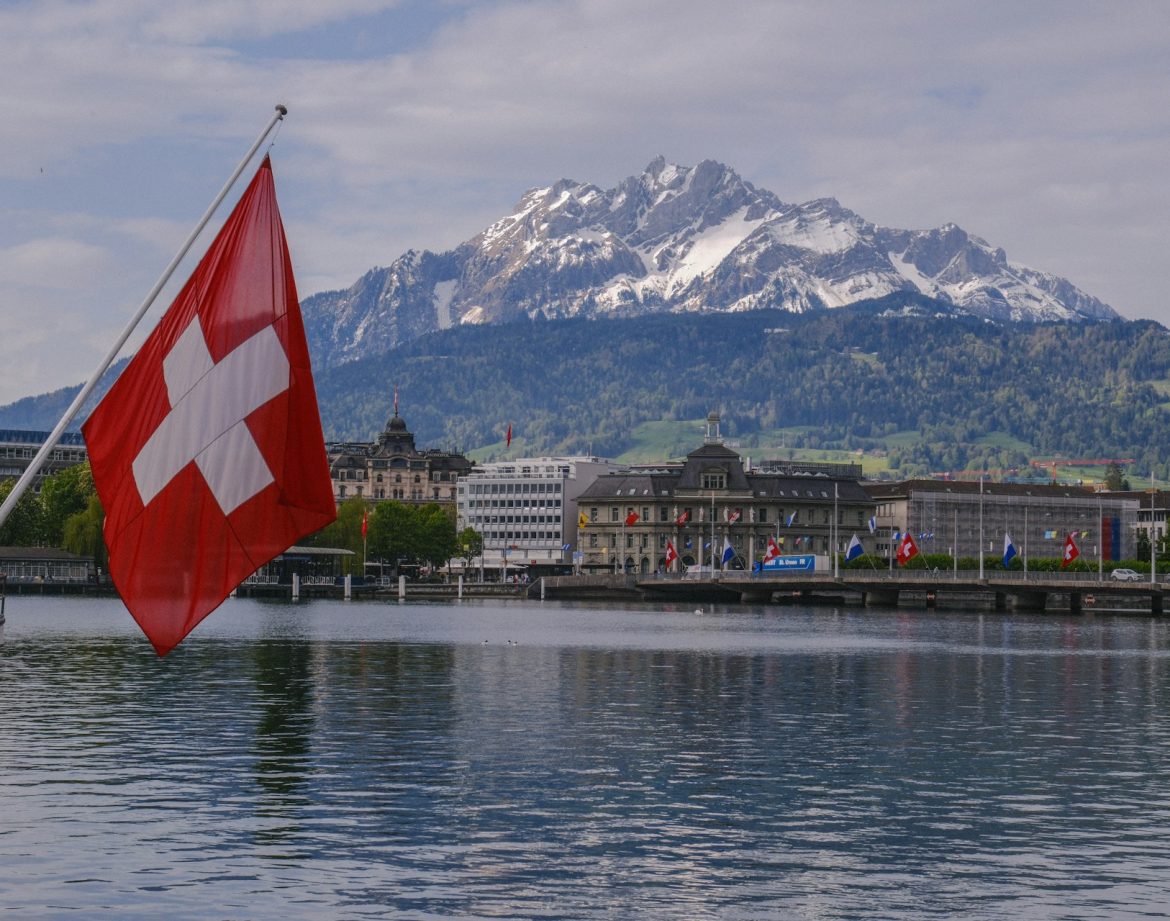A Comprehensive Guide for Norwegian Entrepreneurs Moving to Switzerland
Over the past couple of years, a significant number of Norwegian families, particularly wealthy entrepreneurs, have relocated to Switzerland. This migration trend is primarily driven by the tax policies implemented by the current Norwegian government, which have made the economic environment less favorable for affluent business owners.

In this guide, you can read in detail about the background of this trend, why Switzerland may be a better option, and some tips that can help you move to this country more easily.
The Tax Hike and Its Implications
The recent tax hike in Norway has had a profound impact on wealthy entrepreneurs. The government’s decision to increase taxes, particularly the wealth tax and the dividend tax, has created a challenging financial landscape for high-net-worth individuals.
The exit tax is a barrier to departure
One of the key regulations affecting Norwegian entrepreneurs is the ‘exit tax’ on unrealized capital gains, which was increased to nearly 40% (37.84%). In addition, the wealth tax was raised to 1.1%.
Due to this rise in tax rates, entrepreneurs are finding it increasingly difficult to sustain their businesses without drastic financial adjustments.
When a shareholder leaves Norway, they are subject to a capital gains tax of 37.84% on securities or participation in legal entities. This exit tax was previously 35.2% before October 2022.
The tax is calculated at the time of departure and is generally due immediately. However, a shareholder can defer it as long as they don’t sell the shares and provide sufficient security for the tax due.
Under the older rules, this deferred exit tax would expire five years after departure unless the shares were sold. Since October 2022, the obligation to pay the exit tax remains indefinite, and shareholders must pay the Norwegian capital gains tax of 37.84% upon the sale of the shares.
Norwegian authorities are considering further tightening the exit tax regulations, potentially abolishing the deferral option. This would mean the tax could become immediately due upon departure or payable in installments.
If they implement such measures, it’s likely that more Norwegian entrepreneurs will seek relocation to countries with more favorable tax environments, such as Switzerland.
The Impact on Norwegian Startups
The new tax policies in Norway don’t only affect entrepreneurs but also pose challenges for startups.
While Norway has introduced some favorable measures for startups, such as tax-free stock options until they are cashed out and gains on stock options not being taxed as income tax, there are limitations.
Startups must have a balance sheet or operating income of less than 80 million Norwegian crowns (approximately 8 million USD) to qualify for these benefits. Once a startup grows beyond this threshold, it faces the same high taxes that apply to larger businesses, potentially stifling growth and innovation.
Why Switzerland Is a Better Option
Simply put, Switzerland offers a more attractive tax regime for wealthy individuals. Despite having a wealth tax, Switzerland’s overall tax system is generally more stable and predictable compared to Norway’s rapidly changing tax landscape.
The Swiss political system, with its slower and more deliberate legislative process, provides a sense of stability that is appealing to entrepreneurs looking to safeguard their financial interests.
Embracing New Opportunities: Relocating from Norway to Switzerland

Regardless of why you’re relocating, the exciting prospect of moving opens up a world of possibilities. Specifically, moving from Norway to Switzerland is an international move full of potential. However, you need to prepare thoroughly and understand the new environment.
Language and culture
When relocating internationally, the first consideration is often the language.
There are four official languages in Switzerland:
- French
- Italian
- German (differs slightly from the German spoken in Germany)
- Romansh
Healthcare system
Switzerland offers a universal healthcare system based on compulsory health insurance. Residents must purchase health insurance from private insurers, covering essential medical services and treatments.
The healthcare system is known for its high quality, but also its high costs. In other words, health insurance premiums are a must.
Education system
Switzerland provides an excellent education system, including public, private, and international schools. Known for high standards and a focus on vocational training, the Swiss education system offers various curricula such as the International Baccalaureate (IB) and American, British, or French systems.
Swiss social security contributions
Individuals living in Switzerland are generally subject to Swiss social security contributions. For those with Norwegian or international connections, it is crucial to determine which social security system applies and the corresponding contributions.
Seasons and weather
Switzerland experiences noticeable seasonal changes. Winters can be chilly, especially in mountainous areas, with temperatures dropping to around -10°C in December. In contrast, regions closer to sea level experience milder winters with temperatures between -1 to -4°C . Summers are usually calm, with temperatures ranging from 18 to 28°C.
Financial Considerations When Moving from Norway to Switzerland
Relocating from Norway requires meticulous planning, especially regarding the termination of unlimited tax liability and exit tax provisions. Compliance with Norwegian regulations and the double taxation agreement between Norway and Switzerland is essential to ensure the move is effective from a tax perspective.
Taxation in Switzerland
In Switzerland, individuals are generally taxed on their worldwide income and assets. Under specific conditions, foreign nationals may benefit from attractive lump-sum taxation.
However, those moving from Norway to Switzerland should usually avoid opting for lump-sum taxation initially due to the Norwegian tax authorities’ interpretation of the double tax agreement between the two countries.
It’s crucial to evaluate whether lump-sum taxation is possible later or which taxation method is most beneficial, considering various factors such as asset and income situation and tax planning opportunities.
Switzerland’s decentralized tax system consists of different tax laws and rates for each canton. Generally, taxes are lower in Switzerland than in Norway, but you need to understand the specific tax regulations of your chosen canton.
Consulting a tax advisor can help optimize your tax situation and ensure compliance with Swiss laws.
Tax valuation of foreign companies
Wealthy entrepreneurs often hold significant stakes in business groups in Norway or other countries. Given the different approaches to valuing unlisted participations, a detailed analysis from a Swiss tax perspective is necessary.
There are potential tax savings in Switzerland, not only by residing in a canton with low wealth tax rates but also by accurately determining the wealth tax value of the participation.
Investments in Switzerland
After successfully settling in Switzerland, you should consider establishing business activities in the country.
For instance, Norwegian citizens can acquire real estate in Switzerland without restrictions upon taking up residence. While privately used real estate is rarely acquired through a Swiss company, doing so for investment properties can be beneficial for tax reasons.
However, you should note that Norwegian companies and their Swiss subsidiaries aren’t permitted to acquire residential real estate in Switzerland.
Evaluating the establishment of a Swiss management company also has its advantages, particularly for taking over functions within a Norwegian group of companies. These activities can be financed from the dividends of Norwegian companies.
According to the double taxation agreement between Switzerland and Norway, the Norwegian withholding tax on such dividends is generally reduced to 15%. Additionally, no extra Swiss taxes are due on dividends from shareholdings of at least 10% if the shareholder is domiciled in cantons like Zug or Schwyz.
It’s good to know that investors can relocate to Switzerland through corporate investments. Options include establishing a new company, investing in existing businesses, or engaging in venture capital and startups. Swiss cities like Zurich, Geneva, and Lausanne are innovation hubs, supported by government incentives.
8 Tips for Moving to Switzerland

Moving to another country is the beginning of a new chapter in your life. Here are several valuable tips that will help you start writing that chapter more quickly.
Do your research
As an entrepreneur, the cost of living may not be as pressing an issue for you as for other people. However, it’s good to know that Switzerland has a higher cost of living compared to many other countries.
Household groceries, dining out, public transport, and school fees can be expensive. However, this is balanced by a high quality of life. Be sure to familiarize yourself with all aspects of living costs to avoid surprises.
Decide where you want to live
Switzerland offers diverse living environments, from bustling cities like Zurich and Geneva to quaint villages and mountain towns like Verbier. When deciding, consider your lifestyle preferences, job location, and language spoken in the region.
Arrange your Swiss visa
EU/EFTA citizens enjoy a privileged status in Switzerland under bilateral agreements. They can apply for residency permits by proving sufficient financial means, health insurance, and accommodation. Alternatively, securing an employment contract with a Swiss employer is another viable option.
Entrepreneurs from the EU/EFTA can obtain residency by establishing a viable business in Switzerland, demonstrating self-employment acceptance by the Social Insurance Institution, and providing evidence of income and assets.
Move your belongings…
You can bring household goods tax-free if you prove Switzerland is your new residence. Use international relocation companies for security and convenience. They can also provide storage options if you don’t have a home arranged in Switzerland.
… and your pet
Switzerland has strict regulations for pet entry. Start the process early and consider using relocation companies to assist with paperwork and logistics. Pets will require proper documentation and may need to meet specific health requirements.
Think about health insurance
It’s mandatory for foreigners in Switzerland to have health insurance. Check exemptions and arrange coverage within three months of arrival. You can generally get health insurance policies from private companies.
Find a temporary accommodation
Finding a long-term home can be challenging. Consider serviced apartments or temporary rentals initially. This gives you time to find a permanent place that suits your needs.
Apply for an international driving permit
Use your foreign driving license for 12 months. If not in English, German, French, or Italian, get an International Driving Permit. EU/EEA citizens can exchange their licenses, while others may need to take tests.
Register at the local authorities
It’s mandatory to register within 14 days of arrival. Establish a good relationship with your local authorities for smoother transitions. They can provide valuable information and assistance.
You can open a Swiss bank account only after you register as a resident. Verification of income source and identity is necessary.
Bonus Tips
Here are a few final bonus tips to make the entire process easier for you.
Business culture in Switzerland
Switzerland’s economy is robust, with both large multinationals and a significant number of SMEs. The business culture is hierarchical and conservative but supports innovation and enterprise.
Foreign residents can set up businesses if they meet legal requirements and contribute positively to the Swiss labor market.
Legal business structures
Switzerland offers various legal structures for businesses:
- Sole proprietorship: Suitable for individual entrepreneurs with unlimited liability.
- General partnership: Similar to sole proprietorship but involves multiple owners.
- Limited partnership: Combines general and limited partners with differing liabilities.
- Limited company (SA/AG): An independent legal entity with a minimum capital requirement.
- Limited liability company (GmbH/Sàrl): A common structure with lower capital requirements than SA/AG.
- Cooperative company: Focuses on co-decision-making and transparency, suitable for social enterprises.
Support and resources
Switzerland offers various support resources for entrepreneurs, including:
- SME Portal: Government resource for business start-up and development.
- Innosuisse: Swiss Innovation Agency for entrepreneurial support.
- Venturelab: Support for startups.
- Cantonal Economic Development Agencies: Local support for businesses.
Have You Considered Verbier?
Verbier is a picturesque mountain resort in the Swiss Alps and an attractive option for anyone considering a move to Switzerland. Known for its world-class ski resorts and vibrant outdoor lifestyle, Verbier offers a unique blend of natural beauty and high-quality living.
For entrepreneurs, this environment can provide a peaceful retreat that drives creativity and innovation. Its strong sense of community and good infrastructure make it an ideal place to balance work and leisure.
Additionally, the region’s proximity to major Swiss cities like Geneva and Bern ensures that entrepreneurs can easily access broader business networks and resources while enjoying the tranquility and exclusivity that Verbier offers.
If you can see yourself living in the amazing town of Verbier, the Schraner team is at your service. Book your consultation today and we’ll help you take all the right steps in your relocation process.
Switzerland Is a Country of New Opportunities
Relocating to Switzerland as a Norwegian entrepreneur offers a wealth of opportunities. While the process can be complex, with careful planning and the right resources, it’s certainly manageable and rewarding.
Switzerland’s decentralized tax system, coupled with its high quality of life, excellent healthcare, and education systems, makes it an appealing destination for entrepreneurs and their families. The country’s support for innovation and startups further enhances its appeal.
Preparing for life in Switzerland involves thorough research and planning. From choosing the right location to arranging health insurance, every step requires careful consideration. Utilizing international relocation companies for moving your belongings and pets can alleviate much of the stress associated with such a significant transition.
Switzerland’s business culture, though conservative and hierarchical, is welcoming to foreign entrepreneurs who bring innovation and economic benefits. With various legal business structures available, from sole proprietorships to cooperatives, and substantial support from government and local agencies, the country provides a robust framework for business success.
If you believe the beautiful Verbier is the right option for you, contact us today. We have the most exquisite luxury properties for sale on our listing and we’ll be happy to help you find your dream home.




